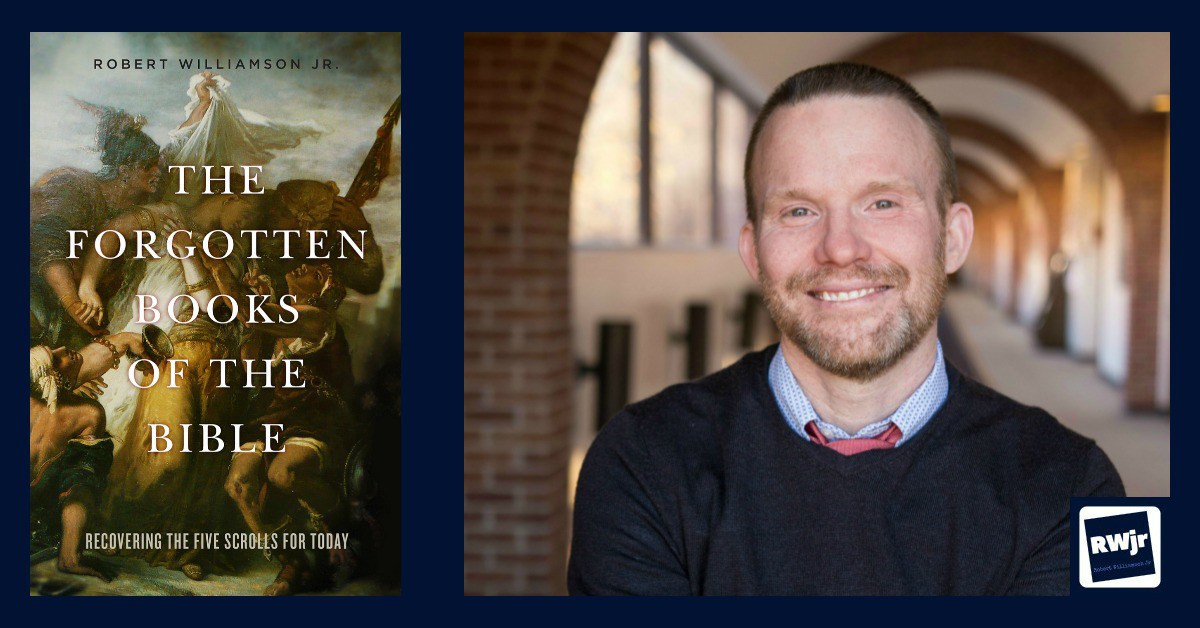Ecclesiastes in Country Music
Robert Williamson and Jason Isbell
Listening to Jason Isbell's "If We Were Vampires"
can help us appreciate the wisdom of Ecclesiastes
as interpreted by Robert Williamson
in his Forgotten Books of the Bible.
Bottom line? We are not vampires,
and we must make our peace
with impermanence.
The beauty is in the finitude.
We are Not Vampires
As we journey through life, it's the moments and relationships that count.
If we were vampires, says Jason Isbell, things would be different.
|
"Every life passes through these seasons, and we shouldn’t expect it to be otherwise. We will celebrate births and mourn deaths. We will find new relationships and let go of old ones. We will dance in celebration and mourn in lamentation. This is all to be expected and cannot be avoided."
Robert Williamson, Forgotten Books of the Bible If We Were VampiresIt's not the long, flowing dress that you're in
Or the light coming off of your skin The fragile heart you protected for so long Or the mercy in your sense of right and wrong It's not your hands searching slow in the dark Or your nails leaving love's watermark It's not the way you talk me off the roof Your questions like directions to the truth It's knowing that this can't go on forever Likely one of us will have to spend some days alone Maybe we'll get forty years together But one day I'll be gone Or one day you'll be gone If we were vampires and death was a joke We'd go out on the sidewalk and smoke And laugh at all the lovers and their plans I wouldn't feel the need to hold your hand Maybe time running out is a gift I'll work hard 'til the end of my shift And give you every second I can find And hope it isn't me who's left behind It's knowing that this can't go on forever Likely one of us will have to spend some days alone Maybe we'll get forty years together But one day I'll be gone Or one day you'll be gone It's knowing that this can't go on forever Likely one of us will have to spend some days alone Maybe we'll get forty years together But one day I'll be gone One day you'll be gone |
Jason Isbell's If We Were Vampires is a mature love song, sung beautifully and dedicated to his wife, the musician Amanda Shires. It's about how time running out is a gift, and how a good marriage includes knowing that "that this can't go on forever."
I'd play Isbell's song at my wedding, and I'd play it for reasons similar to why Dr. Robert Williamson, author of Forgotten Books of the Bible, had a passage from Ecclesiastes read at his wedding. (Scroll down to see Williamson's account in Forgotten Books of the Bible.) Isbell's song, like the book of Ecclesiastes as presented by Williamson, takes death seriously. Not only does his song remind listeners that our most intimate relationships with others -- in a marriage, for example -- will come to an end with death, but also that one person's death will precede another: "it is likely that one of us will have to spend dome days alone." At best, so the song says, "we'll have forty years together." But not more. There is no promise of everlasting life in the song - or in Ecclesiastes. I don't think the narrator of Ecclesiastes would like me. I write this as someone who believes in the possibility, and perhaps even the probability, of a continuing journey after death. I am persuaded by readings in Buddhism and by what I take to be the strong empirical case for a continuing journey, made by David Ray Griffin in Parapyschology, Philosophy, and Spirituality: A Postmodern Perspective. Griffin takes us into terrain far beyond the scope of Ecclesiastes: mind-brain relations, studies in parapsychology, and philosophical considerations of the nature of psychic life in the context a multi-dimensional universe. And yet I think that any "life" in life after death will include impermanence: that is, the moment by moment nature of life itself, such that every moment is, in its own way, a birth and a death, a living and dying. Death does not happen at the end of life alone, so Buddhists and Process Theologians tell us, but at every moment of our lives. Even if there is a continuing journey, we cannot completely escape death. Which takes me back to the point of Isbell's song and Williamson's commentary on Ecclesiastes. Williamson warns us not to measure our lives in terms of lasting achievements or even the permanence of relationships, but rather in terms of the share of life we've been given, whatever the share is. As he puts it: "If we value human existence only in terms of the gain left over at life’s end, we must conclude that all of our hearing and seeing and speaking has been pointless. But if, as the Gatherer suggests, we learn to think in terms of our share rather than our ultimate gain, we can learn to appreciate each and every word spoken, each and every sight seen, each and every utterance heard as having its own value in its own moment, no matter how brief. In this way, the Gatherer compares human life to the cycles of nature. As the sun’s setting cancels its rising, so our death will cancel our birth. That doesn’t mean the journey across the sky counts for nothing." Truth be told, I think he's right. There is a flow of time as the sun journeys across the sky and as we humans journey within the earth. This flow is not simply an add-on to life; it is life, and life unfolds in moments. One day I'll be gone, says the narrator of If We Were Vampires, and one day you'll be gone. At least the "I" of the moment will be gone, never to be recovered except in memory. What to do? How to live? Williamson offers some sage advice. Don't be preoccupied with everlasting life. Make your peace with impermanence, with the passing away of things; and know that the beauty of life, and also its tragedy, is in its finitude. We will celebrate births and mourn deaths, with whatever share we are given. Amen. |
Reading Ecclesiastes at Your Wedding
an excerpt from The Forgotten Books of the Bible
|
Immortality without Escapism?
confessions of a partial death denier
As I was reading Robert Williamson's account of Ecclesiastes in Forgotten Books of the Bible, a good friend of mine died. She was ninety-nine years old and ready to die, so her death was not a tragedy. Her last years had been difficult; I am glad that her suffering is over. But as she died I thought of the whole of her life and what she had meant to me. She was a second-mother to me when I was a child and had been a mentor ever since. She still is.
So where is she now? Obviously she is a memory in my mind and in the minds of others who knew and loved her. She survives her death through my memory of her. But even if I remember her for the rest of my life, and others do as well; our memory will fade over time and, after we are gone, she will eventually be forgotten. Who will remember her a hundred years from now? And in how much detail? What of the particular joys and struggles of her life? I sound like Ecclesiastes.
But I fear that I am not quite there. Perhaps I suffer from too much death anxiety and ought to have the courage to face things more squarely. So I offer a short word in praise of death denial.
Process theologians believe that even after she is forgotten on earth, she will be remembered in the ongoing life of God. We believe that God is a deep Remembering: that is, a universal Soul who receives all that happens, as it happens, and weaves it into a larger tapestry. We call it "objective immortality in God." This does not mean that human beings (and other animals) continue in their personal existence after death, but that they are lovingly remembered such that the good that the did, and that the experiences they enjoyed and suffered, are retained and appreciated for what they were.
Indeed, some process theologians also believe -- and I am among them -- that there is some kind of personal existence after death: that is, that the stream of experiences which constitute a person's life or soul are not precisely identical with the brain, and that the stream continues after death such that there can be spiritual growth after death and perhaps reconciliation and closure. We call it "subjective immortality in God." At the end of his account of his wedding Robert Williamson says "You can't live forever." In one or both of these two ways, we process theologians disagree. At least in a way.
Are we denying death? Well, yes, but not entirely. We are not denying the fact of death; indeed we believe death is occurring at every moment of life. And we believe that even life-after-death would be an ongoing process, moment by moment, in which the subjective immediacy of one moment perishes, making space for another. But we do hope that, amid this process, some kind of resolution can be achieved and enjoyed by people. The real problem is not death, it is incompleteness. Robert Williamson invites us to accept the incompleteness of life without rose-colored glasses. He may be right! But we process theologians still carry some rose with us, not with certainty but with hope. Death is real, but it does not sting quite so much.
Perhaps this is exactly Williamson's (and Ecclesiastes') point. Perhaps we've yet to have the courage to accept life on its own terms, What I appreciate about Williamson's chapter on Ecclesiastes, and Isbell's song, is that they present those terms so beautifully.
-- Jay McDaniel
So where is she now? Obviously she is a memory in my mind and in the minds of others who knew and loved her. She survives her death through my memory of her. But even if I remember her for the rest of my life, and others do as well; our memory will fade over time and, after we are gone, she will eventually be forgotten. Who will remember her a hundred years from now? And in how much detail? What of the particular joys and struggles of her life? I sound like Ecclesiastes.
But I fear that I am not quite there. Perhaps I suffer from too much death anxiety and ought to have the courage to face things more squarely. So I offer a short word in praise of death denial.
Process theologians believe that even after she is forgotten on earth, she will be remembered in the ongoing life of God. We believe that God is a deep Remembering: that is, a universal Soul who receives all that happens, as it happens, and weaves it into a larger tapestry. We call it "objective immortality in God." This does not mean that human beings (and other animals) continue in their personal existence after death, but that they are lovingly remembered such that the good that the did, and that the experiences they enjoyed and suffered, are retained and appreciated for what they were.
Indeed, some process theologians also believe -- and I am among them -- that there is some kind of personal existence after death: that is, that the stream of experiences which constitute a person's life or soul are not precisely identical with the brain, and that the stream continues after death such that there can be spiritual growth after death and perhaps reconciliation and closure. We call it "subjective immortality in God." At the end of his account of his wedding Robert Williamson says "You can't live forever." In one or both of these two ways, we process theologians disagree. At least in a way.
Are we denying death? Well, yes, but not entirely. We are not denying the fact of death; indeed we believe death is occurring at every moment of life. And we believe that even life-after-death would be an ongoing process, moment by moment, in which the subjective immediacy of one moment perishes, making space for another. But we do hope that, amid this process, some kind of resolution can be achieved and enjoyed by people. The real problem is not death, it is incompleteness. Robert Williamson invites us to accept the incompleteness of life without rose-colored glasses. He may be right! But we process theologians still carry some rose with us, not with certainty but with hope. Death is real, but it does not sting quite so much.
Perhaps this is exactly Williamson's (and Ecclesiastes') point. Perhaps we've yet to have the courage to accept life on its own terms, What I appreciate about Williamson's chapter on Ecclesiastes, and Isbell's song, is that they present those terms so beautifully.
-- Jay McDaniel







